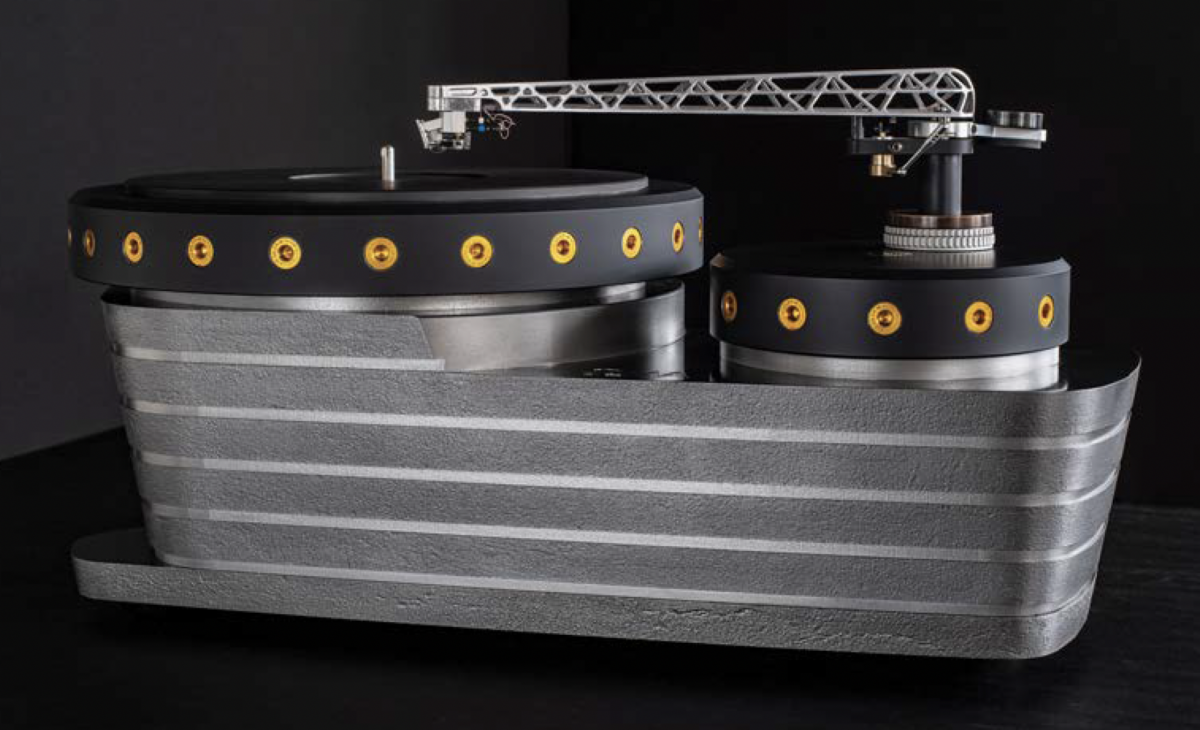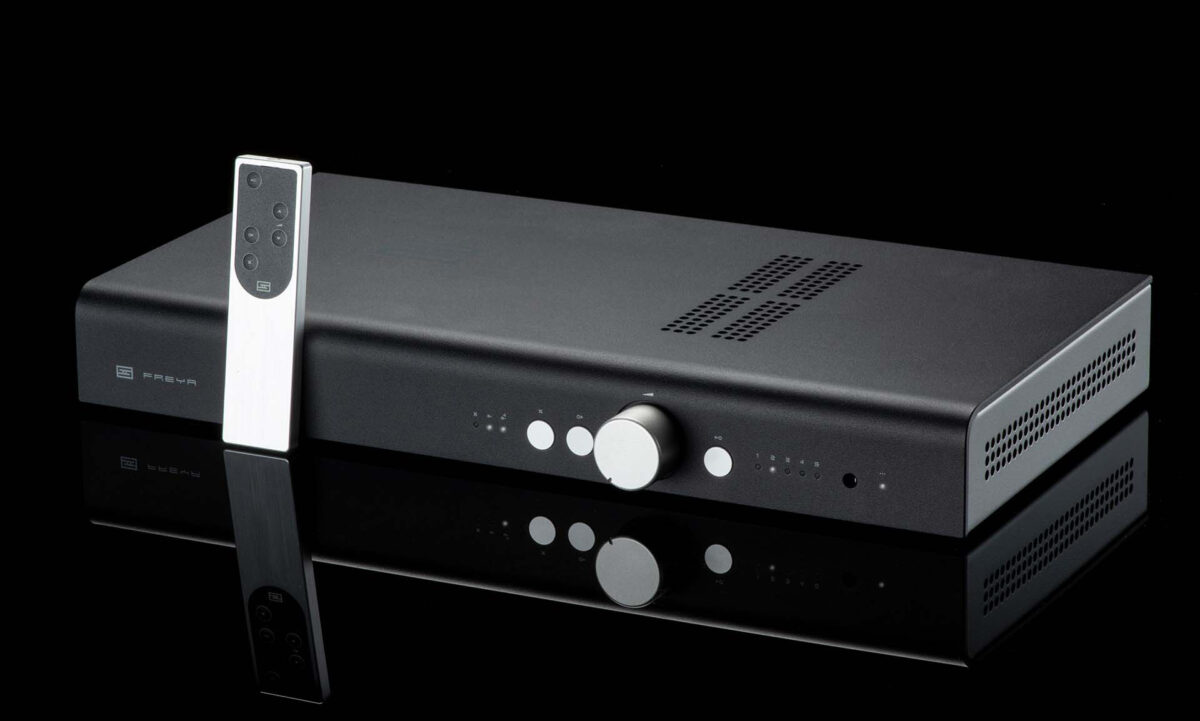
Where does one find highly musical and reliable, full-range tube monoblock amplifiers for around $2k per pair that are capable of driving most any loudspeaker, while also avoiding the syrupy thicknes, soggy low end, and rolled-off highs of many classic tube designs? I’ve been searching for amps with these attributes ever since I loaned a “former” audio buddy my custom MFA-140s, with six EL34s per chassis, and he sold them! A few new entries in the amplifier sweepstakes from China appeared to fit the bill, but my initial optimism over them waned after examining the build-quality, or should I say variability, of several. Perhaps I’m overly sensitive after recently speaking with the head of one audio company whose factory in China began using counterfeit parts, unbeknownst to him, until there were several failures in the field. Yet, I’m also aware of some companies who “ride herd” on their Chinese factories and are able to produce products with exceptional build-quality for a modest cost. PrimaLuna is one prime example. The combination of its new monoblocks driving a pair of Sonus Faber Amati Anniversario speakers sounded glorious at CES, so I thought they just might be the answer for me—not only to drive my Quads, but most any other speaker.
The PrimaLuna Prologue Sixes come standard with four EL34s per side. I chose to review the Sixes instead of the KT88-based Sevens, because I prefer the more liquid midrange of the EL34 tube and am willing to trade-off a bit of bass punch and extension at the frequency extremes. You may not be. While the Sevens are slightly more expensive ($2400), they do offer upgraded Solen caps and fast-recovery diodes. Both versions use point-to-point wiring, which I prefer, not only for its potential sonic advantages, but also for its ease of servicing and modifying. It’s a big reason why so many of the classic McIntosh and Marantz tube amplifiers are still working rather than being used as boat anchors. However, just because an amplifier offers point-to-point wiring doesn’t mean it’s always better, particularly if the solder joints are sloppy. There’s no need to worry here, as the workmanship on the Prologue Sixes is first-rate and puts the build-quality of several far more costly amplifiers to shame. These amplifiers seem to be built for those who plan on owning them for decades instead of a few years.
If you had assumed that all tube amplifiers were finicky, think again. My Sixes have operated flawlessly with nary a hiccup. The PrimaLuna team has seemingly designed out all the potential problems one might encounter with a tube amplifier. It starts with the package design (each amp is triple-boxed) and extends to several product features that make these tube amps virtually trouble-free. For example, the output tubes are gently driven—the Prologue Six’s soft-start feature extends tube life and reduces the chance of both tube and internal part failures, while the amplifier output stage is protected by a fuse, and the “Adaptive Autobias” circuit keeps tubes operating at their peak ranges and reduces distortion significantly. Better still, there’s no need to monkey around with bias meters and pots or use matched sets of tubes. If you know how to change a light bulb, you’ve got all the skill you need.
OK, so what more could these PrimaLunas offer beyond the Prologue Fives that Sallie Reynolds recommended for a previous Editors’ Choice Award? The most obvious advantages are that the Sixes have more power, a separate chassis for each channel, new wideband transformers designed to handle difficult speaker loads (a 2-ohm tap is included), and a unique front-end topology which reportedly gives you all the sonic advantages of zero feedback but with drive capability, extension at the frequency extremes, and low distortion. Although there are some mighty good “dual-mono” singlechassis stereo amps in this price range, I prefer monoblocks, because they physically isolate the channels, and one can place the amp right behind the speaker, connecting to it with a very short length of cable.
Unlike many larger amplifiers that seem to lose some of the magic enjoyed by their smaller counterparts, the good news is that the Prologue Sixes not only retain the sonic virtues of the PrimaLuna stereo amplifiers, but extend them. Their performance with my original Quads was superlative, with a transient quickness rivaling a very good solid-state amplifier but with harmonic richness, natural timbre, and a wide and focused soundstage. You won’t find any homogenization of sound with these tube amps as they revealed even minor system changes, so you’re out of luck if you expect to use them as tone controls to tame bright speakers. Even more surprising, the Sixes drew more bass and dynamics out of my original Quads, using KT66 output tubes, than I thought possible and forced me to turn down the gain because the music was too loud—imagine that!
The Sixes are as equally at home reproducing the sounds of Audioslave as they are with Miles or Mahler. I typically wouldn’t recommend most 70-watt tube amps as ideal choices for power rock and electronica, but these amps have satisfying deep bass and really swing dynamically and rhythmically. On classical music, the transient speed of mallets hitting tympani can be startling, and violins have both bite and body, without sounding harsh. These amps reveal a lot of the natural subtlety in the music, and acoustic instruments and voices can sound life-like on good recordings. I sat transfixed listening to the late Hawaiian singer Israel Kamakawiwo’ole’s cover of “Over the Rainbow” from Alone in IZ World [Mountain Apple Company]. There was a musical rightness from the lightning attack of the fingers strumming the ukulele, to the natural timbre of the instrument, to the air behind his floating, lilting voice.
While they may lack the ultimate sweetness, palpability, and absence of grain of some far more costly triode designs, or the absolute quietness, inner detail, and power reserves of some expensive transistor amplifiers, the Prologue Sixes gave a surprisingly good accounting of themselves. These amplifiers are obviously designed for those who want to enjoy the musicality of tubes without having to be tweaks; yet the PrimaLunas make an ideal platform for those audiophiles who love to experiment with “tube-rolling” and customize the sound (within limits) to their own preferences. They are optimized for EL-34, 6L6GC, KT66, and 7581 output tubes, but are also said to work with KT88s, 6550s, and KT90s. Yes, you can get different, but not always better, sound with different types of output tubes. If you want a bit more clarity and dimensionality, but a more recessed upper midrange, you might try the 6L6GC. If you want a bit more bass punch and transient speed, but less liquid mids, try some KT66s. I can’t really say I preferred one type overall, as it depended on which speakers I was using. But remember, you can leave well enough alone and the sound will be really good.
The PrimaLuna Prologue Sixes represent a significant breakthrough in high performance audio. Not only are they the most “hasslefree” and easy-to-operate tube amplifiers I’ve ever used, but they sound really good. The Sixes rival many (but not all) of the best attributes of transistor amps, but they also enjoy the compelling sonic virtues of tubes, while largely minimizing their drawbacks. To get this combination of natural musicality, power, reliability, flexibility, and build-quality, one would expect to spend far more. These surprisingly good tube monoblocks should keep many demanding audiophiles satisfied, but also encourage lots of music enthusiasts to take the plunge into the tube-side of the pool.
By Jim Hannon
More articles from this editorRead Next From Review
See all
Oswalds Mill Audio K3 Turntable
- Apr 12, 2024

2023 Golden Ear: Schiit Freya S Preamplifier
- Apr 12, 2024




















